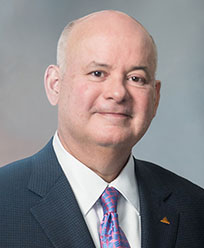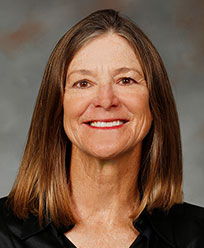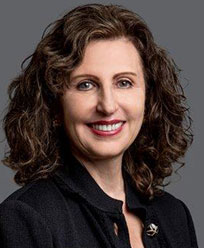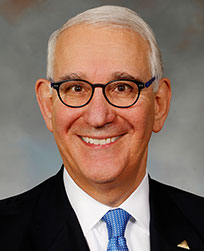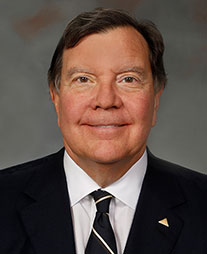Board Structure
The Board assumes an active role in providing oversight of, and guidance to, our executive management team and in maintaining a strong system of checks and balances. Based on New York Stock Exchange listing standards, SEC requirements, our Corporate Governance Principles, and other key expectations, the Board believes that an appropriate Board leadership structure includes:
- A substantial majority of independent Directors with diverse backgrounds and experiences.
- Extremely capable committee chairs.
- Strong independent leadership provided by either an independent, non-executive Chair of the Board or a Lead Independent Director.
The Board’s current leadership structure meets these objectives. Following our 2022 Annual Meeting of Shareholders, ten of our 11 Directors were determined to be independent. All Directors are required to stand for election on an annual basis, thus providing shareholders with a yearly opportunity to express their views on each Director’s individual performance and contribution to the Board. Our executive officers benefit from oversight provided by highly experienced, well-informed, and fully engaged Board members; accordingly, we seek out Directors with a wide range of backgrounds and skill sets. Our 2022 Proxy Statement includes a Board Skills and Composition Matrix that sets forth the diversity of expertise and abilities that each Director contributes to the Board’s oversight functions. The 2022 Proxy Statement also speaks to the capabilities and independence of our Board Chair and the chairs of each of our standing Board committees.
The Board also believes that its leadership structure should be flexible to accommodate different approaches based on its evaluation of the best interests of the Company and our stakeholders at any given time. In consultation with the NCG Committee, the Board carefully considers its leadership structure and composition each year as part of the continuous succession planning process. A critical aspect of the Board’s leadership structure analysis is determining how best to honor the Board’s commitment to maintaining robust independent leadership, given the present needs of the Company. After undertaking such an evaluation in early 2022, the Board continues to believe that the Company’s interests are best served at this time by having an independent, non-executive Chair to provide independent leadership to the Board. The Board has also determined that the Company benefits from its CEO, who is intimately involved with and responsible for managing the Company’s operations and strategy, also serving on the Board and its Executive Committee. Having the CEO serve in this capacity provides a critical link between the Board’s oversight and the day-to-day operations of the Company.


Each year, Directors undergo a robust evaluation process to help ensure that the Board, its committees, and its individual members are best equipped to create shared value for the Company’s stakeholders. The evaluation process includes one-on-one discussions between the independent Chair and each independent Director; one-on-one discussions between each committee Chair and their members; full Board and committee evaluations; and follow-up action items, as applicable. Topics such as Board refreshment, management succession, Board and committee oversight and responsibilities, and oversight of corporate strategy are routinely included as possible discussion items. The results of these self-evaluations are then considered when determining the slate of Director nominees for each annual shareholder meeting. The full Board, Committee, and Individual Director Evaluation Program, including the steps, example questions, and some of the takeaways and action items from the most recent self-evaluation, is discussed in more detail in the 2022 Proxy Statement.
The NCG Committee, which oversees the Board evaluation process, is also responsible for identifying and assessing potential candidates for Directorship using the criteria established by the Board and set forth in the Corporate Governance Principles. The process used by the Board to identify, evaluate, appoint, and onboard new Directors is provided in the 2022 Proxy Statement. Since 2017, the Board has appointed five new Directors. Each of these Directors brings unique skills and backgrounds to their Board service that complement those of other Directors, thus providing the Board with additional diverse points of view when making decisions and providing oversight. To that end, 80 percent of the Directors who have joined our Board since 2017 self-identify as diverse (including diversity of gender and race/ethnicity).
Commitment to Leadership Diversity — The Rooney Rule in Action
In 2019, the NCG Committee and Board amended the Corporate Governance Principles to reaffirm the Board’s commitment to diversity (including gender, race, and ethnicity) by adopting a version of the “Rooney Rule.” Pursuant to the revision, the NCG Committee endeavors to include candidates who reflect diverse backgrounds in the pool of candidates from which Director nominees are chosen. Similarly, third-party firms used to compile a pool of Director candidates are requested to include such individuals. This rule was extended to searches for candidates for a Section 16 Executive Officer position, including the CEO’s successor, in 2020. These changes further the existing practice among the Board and executive management of considering diversity when recruiting and nominating individuals for Directorship and Section 16 Executive Officer positions.
Compensation Philosophy and Objectives
Our compensation and benefits programs operate under the guidance and oversight of the CHR Committee. The CHR Committee is responsible to the Board for approving Regions’ executive compensation objectives and ensuring that the compensation programs and policies of the Company support the business goals and strategic plans approved by the Board.
We operate in a highly competitive and regulated environment. Our ability to successfully compete and grow our business depends on the skill, acumen, and motivation of our executives and their ability to develop and execute a dynamic strategic plan. With this in mind, the CHR Committee established the following guiding principles of compensation to serve as the foundation of our compensation philosophy:
- Set competitive targets - Compensation targets should be transparent and set at competitive levels.
- Pay for performance based on clear and focused goals - Actual compensation should pay for performance based on goals that are clear and focused. As an associate’s business responsibilities increase, the mix of compensation should be more heavily weighted toward variable compensation that is considered “at-risk,” based on corporate and individual results.
- Promote shared value - Compensation programs should promote shared value through alignment of the long-term interests of our shareholders, customers, and associates.
- Balance growth and risk - Compensation programs should be balanced, incenting sustainable, profitable growth without encouraging associates to take unreasonable risks that may damage the long-term value of the Company. To ensure programs remain consistent with the safety and soundness of the Company, compensation programs will be subject to robust risk management and governance frameworks, including oversight by the CHR Committee of the Board.
- Align with corporate values - Compensation programs should be fair, equitable, and align with our corporate values.
In addition to these broad guiding principles, the CHR Committee adopted a number of key practices that are consistent with our philosophy and our commitment to excellence in corporate governance. Equally as important as adopting strong practices is a commitment to refrain from certain compensation and employment practices that are inconsistent with our philosophy and goals.
